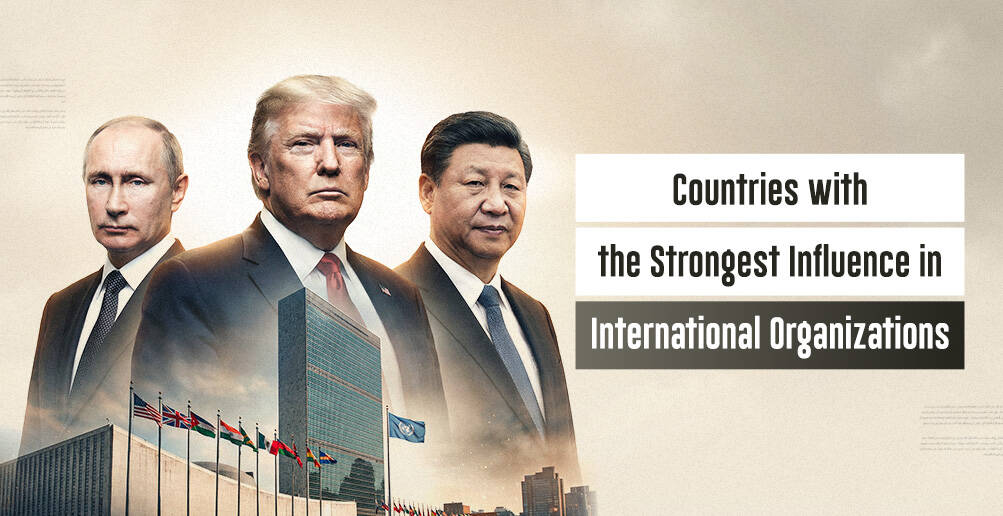Did Citizens-by-Investment Lose Visa-Free Entry to the UK?

The need for capital prompted about half of the countries in the world to offer their nationality or permanent residence there for sale in return for investments that vary between paying a donation to buying a property or setting up a project.
Although the idea appeared globally four decades ago, recent years have witnessed its expansion to many countries, prompted by economic conditions to enter into the trade of the so-called golden passport.
As the process of purchasing passports has become attractive to investors, just like buying real estate, jewelry, and yachts, citizenship by investment programs have become a direct way to obtain a second passport that gives applicants permanent citizenship and a passport when investing in the country that grants citizenship, without having to reside in that country or even visit it.
Reports indicate that countries such as Saint Kitts and Nevis and Dominica are among the most preferred nationalities within citizenship by investment programs.
British Measure
In a surprising development, the British government announced on July 19, 2023, that citizens of five countries, namely Dominica, Vanuatu, Honduras, Timor-Leste, and Namibia, need to obtain a visa before traveling to the UK for the purposes of a short visit that does not exceed a period of 6 months, as well as a transit visa in the UK.
The UK Home Secretary Suella Braverman clarified the details of the decision, which takes effect immediately but excludes travelers who have already made travel reservations to the UK before 3:00 GMT on July 19.
These individuals will be allowed to enter without a visa, provided that they arrive in the UK no later than August 16, 2023.
Also, holders of passports from the five aforementioned countries who are currently in Britain will not be affected by this procedure and can still continue to stay in the UK without a visa for a period not exceeding 6 months.
According to what the British minister said, this decision was taken for reasons related to immigration and border security only, and this is not an indication of weak relations between the UK and these countries.
In a statement submitted to the British Parliament, Minister Braverman explained that arrangements have been made so that citizens of these countries can apply for British visas for short visits.
On the other hand, she pointed to the increasing number of asylum applications in the UK from citizens of Honduras and Namibia.
In explaining the background to taking this measure, Braverman said that a careful study of the rules for granting citizenship by investment in Dominica and Vanuatu showed a clear misuse of this system, including granting citizenship to individuals known to pose a risk to the UK.
“There has been a sustained increase in the number of Timorese nationals arriving at the UK border as non-genuine visitors, often with the intention to fraudulently claim EU Settlement Scheme status as dependents or to work illegally in the UK,” she added.
She noted that in Honduras and Namibia, there has been a steady and significant increase in the number of asylum applications to the UK by those nationals who abused the requirement to visit British territory for a limited period as non-visa nationals when it turned out that their intent was to seek asylum.
The number of asylum applications submitted by Honduran citizens reached 789 during the past year, 2022. During the first quarter of 2023, the number of such applications amounted to 275 asylum applications, compared to only 9 asylum applications submitted by Honduran citizens in 2017.
According to British statistics, citizens of Namibia and Honduras come at the forefront among applicants for asylum among visitors to the UK who are exempt from entry visas.

Attractive Investment
Work-for-citizenship programs are not new. They have been around for decades, initially appearing as a way for some countries to boost their income. Canada, and the Caribbean Federation of Saint Kitts and Nevis, the smallest sovereign state in the Americas made up of two major islands, initiated these policies in the 1980s. The U.S. and the UK also initiated similar policies in the 1990s.
The details of these policies and programs vary from country to country. But it allows foreigners to invest in real estate projects and trade, either by buying real estate or by paying money directly to the country’s government in return for obtaining a visa or passport.
Saint Kitts and Nevis launched its initiative in 1984, one year after declaring independence from the UK. The goal was to get more money flowing from companies that see great value in the tropical beaches and low taxes of this federal state.
These policies attracted only a few hundred at first. But by 2009, as a result of a major marketing campaign, holders of this country’s passport were granted visa-free entry to 26 countries of the Schengen area in Europe, and the demand for these passports increased very quickly.
The most popular citizenship program is found in the Caribbean islands, where the wonderful beaches, the lack of obstacles to investments, the ease of requirements for obtaining citizenship, and the speed of the procedures for obtaining it, are all factors that combine to attract people.
For example, to obtain Dominica citizenship, you need to invest an amount of $100,000 without spending any time on the island and without the need for waiting time.
The Dominican passport ranks high among the global passports, as it is possible to travel without a visa with the Dominica passport to more than 140 destinations around the world, whether without a visa at all or with a visa on arrival.
This feature is the main attraction that drives many investors to apply for the Dominica citizenship by investment program.
Freedom of movement is an attractive factor for such programs, especially in a world that is witnessing an increase in the political isolation of countries and political and regional blocs, despite the globalization it is witnessing.

In the same context, the Pacific state of Vanuatu was one of the most prominent destinations for obtaining citizenship, thanks to a major advertising campaign launched by the country that sells its nationality for $130,000 and on easy terms that do not require a visit to the country and with procedures that expire within a month.
On the other hand, a Vanuatu passport can enter 130 countries without a visa, including the UK and the EU.
The program brought the Vanuatu government $116 million in 2020, but it sparked criticism that 2,000 people obtained citizenship that year, including businessmen accused in various cases, and one of them is subject to U.S. sanctions.
The Guardian newspaper pointed out that the presence of Vanuatu as a tax haven may herald the island’s transformation into a back door for criminal gangs to enter the UK and the EU, as well as making it an attractive location for money laundering.
According to the newspaper’s investigation, Vanuatu issued nearly 2,200 passports in 2020, more than half of them to Chinese citizens, and then came the Nigerian, Russian, Lebanese, Iranian, Libyan, Syrian, and Afghan nationalities.
The investigation revealed that a number of applicants owned some shell companies with no clear commercial activity, and some of them changed their legal name after obtaining Vanuatu citizenship, which gives them a new identity.
The authorities of the Pacific country replied that it is a signatory to international treaties, and therefore it is difficult for the outlaws to use Vanuatu as a center for them.
However, the EU expressed its concerns, forcing Vanuatu to pledge to intensify background checks for applicants to obtain its citizenship in exchange for investment.

It is noteworthy that these programs raise widespread controversy from time to time, and their critics say that citizenship should not be bought and sold.
They also say that such programs are designed for the rich only, while they are considered unfair to others.
They point to concerns about money laundering and other criminal activity, and say the programs can be a backdoor entry into countries that do not have normal immigration systems.
In turn, Washington-based activist Omar Taha indicated in a statement to Al-Estiklal that citizenship by investment programs are a dual solution for economically distressed countries and for individuals seeking economic or social ambitions.
“But it is definitely an abnormal model for building states, and the establishment of these states will not be healthy in the future,” he said.
On the other hand, Mr. Taha pointed out that “stability cannot be guaranteed in these countries, whether on the economic, political, international or legal level.”
“There may be an amendment to the nationality laws within these countries, and the privileges of the naturalized persons may be withdrawn, or a ban may be placed on these countries, or their passports may be degraded in the future, and the privilege of entry to some countries may be lost, as happened recently between the UK and some countries,” he said.
“Hence, the policies of countries that sell their nationalities without controls and conditions, the most important of which are residency and social integration, cannot be accepted,” Mr. Taha added.












